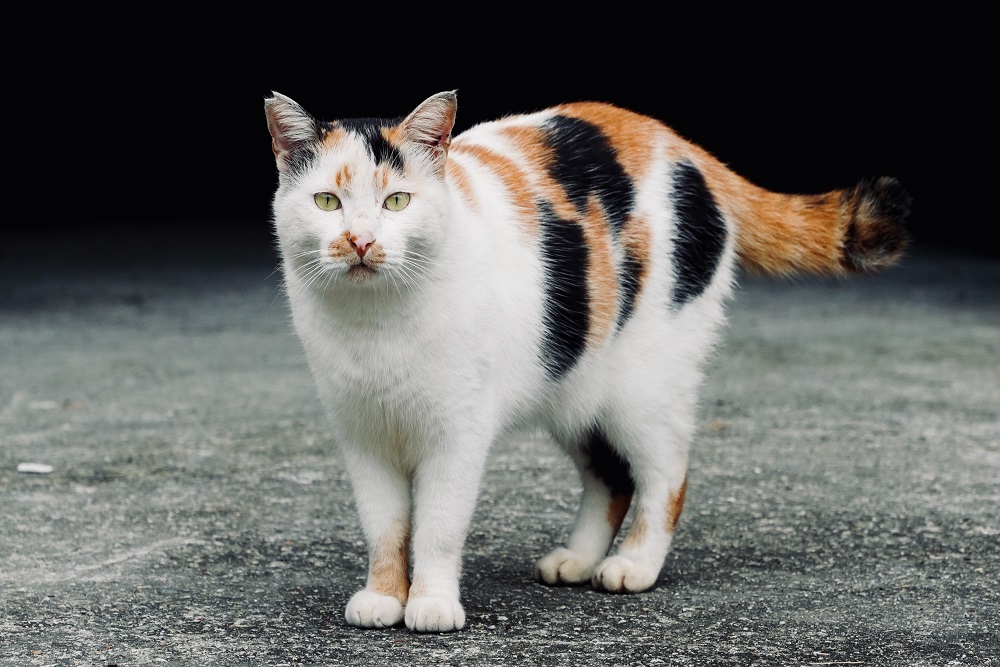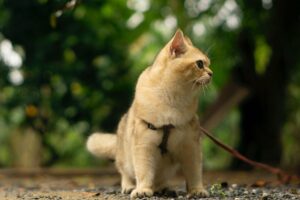As the vegan lifestyle gains popularity, it’s no surprise that some pet owners are considering a plant-based diet for their furry friends. But can cats really thrive on a vegan diet? As controversial as it may seem, more and more people are choosing to feed their feline companions a meat-free diet. In this article, we’ll explore what exactly a vegan cat is, why some pet owners choose this route and how to properly care for your furry friend if you decide to make the switch. Let’s dig in!
What is a vegan cat?
A vegan cat is a feline that follows a diet composed entirely of plant-based foods.
Unlike most cats, who are obligate carnivores and require meat to thrive, vegan cats consume only food items derived from plants.
This means their meals consist primarily of vegetables, grains, and sometimes soy products.
According to some animal welfare organizations and veterinarians, feeding your cat a vegan diet can be an ethical choice.
By eliminating the need for your cat to consume meat products, you’re reducing the demand for factory farming practices that can be cruel to animals.
However, it’s important to note that not all cats are suitable candidates for a vegan diet.
While some may adapt well to such diets with proper supplementation and monitoring by a veterinarian.
Others may experience health problems due to nutritional deficiencies.
If you’re considering switching your cat over to a vegan diet or have any concerns about their current dietary needs being met as an obligate carnivore.
It’s always best to consult with a licensed veterinarian first before making any drastic changes in their nutrition plan.
Why do some people choose to feed their cats a vegan diet?
It may come as a surprise to some that cats, being carnivores by nature, can actually thrive on a vegan diet.
While it is not recommended for all cats, there are certain situations where feeding them plant-based food may be beneficial.
One of the main reasons people choose to feed their cats a vegan diet is due to ethical or environmental concerns.
Many vegans believe in minimizing animal exploitation and suffering, even if it means altering traditional diets for their pets.
Additionally, some cat owners have found that their feline friends experience health improvements from consuming plant-based foods.
For example, cats who suffer from allergies or digestive issues may benefit from a vegan diet.
Free of common allergens such as dairy and meat products.
However, it’s important to note that transitioning your cat to a vegan diet should always be done under the guidance of a veterinarian.
And also with careful consideration of the specific nutritional needs of your pet.
What are the benefits of a vegan diet for cats?
A vegan diet for cats can provide several benefits that may surprise many pet owners.
One of the main benefits is weight control, as a plant-based diet tends to be lower in calories and fat than traditional meat-based diets.
This can be especially beneficial for overweight or obese cats.
Another benefit of a vegan cat diet is improved digestion.
Plant-based foods are often easier to digest than animal proteins, which can lead to fewer digestive issues such as constipation or diarrhea.
Additionally, some studies have shown that a vegan cat diet may help reduce the risk of certain health problems.
Such as urinary tract infections and kidney disease.
This could be due to the fact that plant-based diets tend to be more alkaline, which promotes better urinary tract health.
Furthermore, feeding your cat a vegan diet can also reduce their carbon footprint by reducing the demand for animal products in the pet food industry.
While there are certainly challenges associated with feeding your cat a vegan diet.
It’s important to note that there are also potential benefits worth considering.
However, it’s always best to consult with your veterinarian before making any major changes to your pet’s dietary routine.
What are the challenges of feeding a vegan cat?
Feeding a vegan diet to your cat can come with its own set of challenges.
The biggest challenge is ensuring that your cat receives all the essential nutrients, vitamins and minerals required for their overall health and well-being.
Cats are obligate carnivores, which means they require certain nutrients found only in animal products.
Vegan diets lack these crucial ingredients, especially taurine, an amino acid necessary for healthy eyesight and heart function in cats.
Therefore, it’s important to supplement their diet with appropriate amounts of taurine or other essential amino acids.
Another challenge is finding vegan cat food that meets the nutritional requirements of cats while also being palatable.
Some cats may not enjoy the taste or texture of plant-based proteins such as soy or wheat gluten.
It’s also important to monitor your cat’s weight regularly as some commercial vegan cat foods can be high in carbohydrates which could lead to obesity if overfed.
Transitioning a cat from a meat-based diet to a vegan one should be done gradually under veterinary supervision.
Since sudden changes could cause digestive problems like diarrhea or vomiting.
Feeding your cat a vegan diet requires careful consideration and planning to ensure they receive all necessary nutrients without compromising on taste or quality.
What are some tips for feeding a vegan cat?
Feeding a vegan cat can be challenging, but with the right approach and knowledge, it can be done safely and effectively.
Firstly, it’s important to consult with a veterinarian before making any dietary changes for your cat.
They’ll be able to advise you on the best vegan food options that meet all of your cat’s nutritional requirements.
When shopping for vegan cat food, make sure to read labels carefully.
Look for products that contain essential nutrients such as taurine, vitamin D3, and arachidonic acid which are crucial for cats’ health.
Additionally, it may be helpful to supplement your cat’s diet with plant-based omega-3 fats such as flaxseed oil or algae-derived supplements.
These can help support heart health and reduce inflammation in their body.
Remember that not all cats tolerate new foods well.
Introduce any dietary changes gradually and monitor them closely for any signs of digestive upset or discomfort.
By working closely with your vet and being mindful of nutrition guidelines when selecting food products.
Feeding a healthy vegan diet is possible while ensuring optimal health outcomes for your feline friend.
Conclusion
While a vegan diet may work for some cats, it is important to remember that cats are obligate carnivores.
And require certain nutrients that can only be found in animal products.
Before making any major dietary changes for your cat, consult with a veterinarian who can provide guidance on proper nutrition.
Additionally, if you choose to feed your cat a vegan diet, make sure to do so carefully by including high-quality protein sources.
And supplementing with necessary vitamins and minerals.
Ultimately, the health and well-being of your feline companion should always be the top priority.








